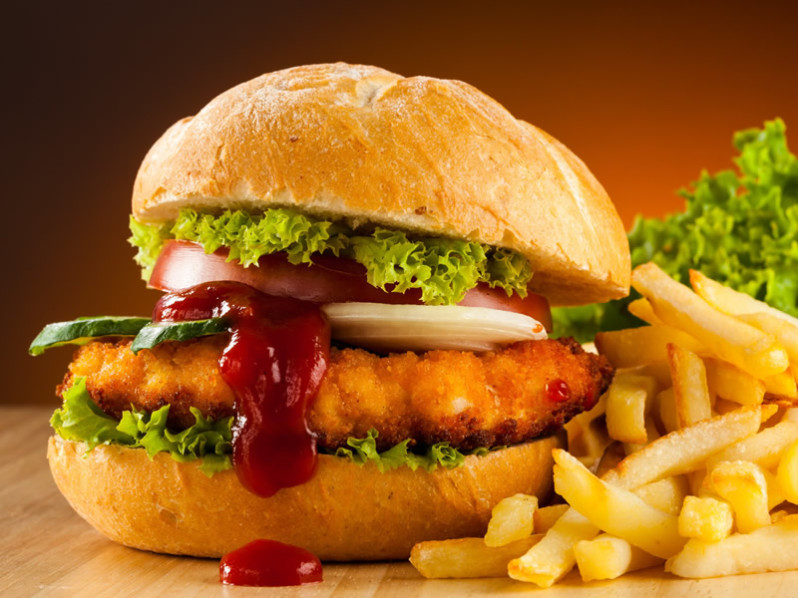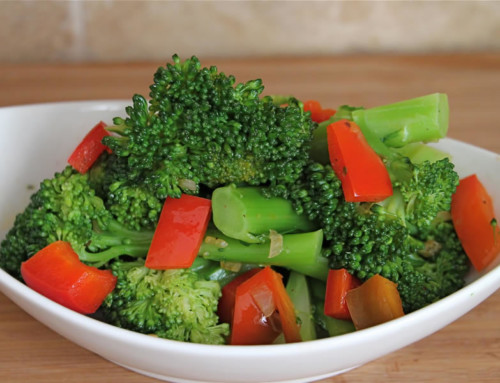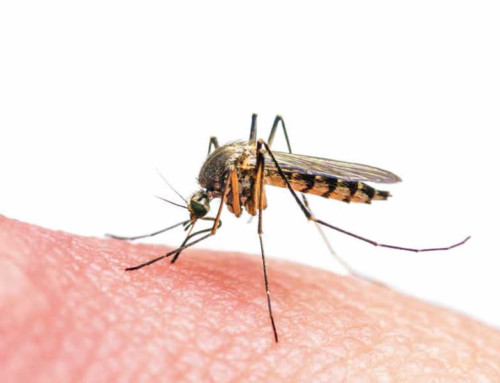It is absolutely normal to have an increased appetite in winter and think about feasting on fatty foods all the time! With the drop in temperature, your body’s temperature drops a bit too and it needs food to produce heat and stay warm. Giving in to your cravings once every now and then is fine, but you need to realize that overdoing it coupled with a lack of exercise can lead to weight gain. If you think your appetite has spun out of control and that you can’t keep yourself from comfort foods, read on for 9 tips that will help you get back on track.
Stay Hydrated
A glass of water can be quite unappealing in the cold weather, but chances are that you’re confusing thirst with hunger! So every time you crave something calorific, just gulp down a glass of water and give yourself some time to let the craving subside. While water can help you control your urges, sipping on it through the day can be boring. Staying hydrated in winters has many health benefits so do drink plenty of green tea and natural fruit juices. Make sure you stay away from overly sweetened and caffeinated drinks, and alcohol as these not only pack calories but can also be dehydrating.
Eat Soup before Meals
Eating soup before meals can fill you up and cause you to eat less, thereby cutting down the total amount of calories per meal. What’s more, eating soup also keeps you hydrated!
Saying no to a bowlful of steaming soup can be difficult, but ensure you only eat soups that are non-creamy. Soups don’t have to be rich and creamy to be filling and you canmake several delicious soups using ingredients like squash, vegetables, beans, lentils, and lean meats.
Don’t Skip Meals
Skipping meals, especially breakfast, can make you feel hungry and can cause you to stuff yourself with unhealthy foods. So make sure you eat breakfast and at least three other meals each day. Also avoid eating one full meal a day. Instead, break large portions into 4-5 smaller portions and eat them at regular intervals through the day. Eating just one heavy meal a day prevents you from eating mindfully – you’re likely to get so hungry that you’ll readily scarf down huge amounts of unhealthy food.
Snack Wisely
Snacking between meals isn’t the problem; what matters is what you snack on. With the drop in temperature, you’ll crave a lot of carbohydrate-rich foods – just stay away from foods that raise blood sugar levels immediately. Foods like whole grains, porridge, beans, and lentils have a low glycemic index, which means they will increase blood sugar levels steadily. These foods will also keep you full for long, so you’ll be likely to binge less. Apart from these foods, munch on snacks like string cheese, peanut butter, crackers, veggies like celery and carrots, and fresh fruits to satisfy cravings.
Eat Slowly
Whether you’re having meals or a mid-meal snack, be sure to eat slowly. It takes your brain twenty minutes to get the message that you’re full, so chewing each morsel well can prevent overeating. Also avoid eating while watching TV or working. Take your eyes off the screen and concentrate on your food to prevent over-indulgence.
Do Away with the Unhealthy Stuff
Remember that out of sight is out of mind. So go through your fridge, kitchen cabinets, and pantry and get rid of all unhealthy foods. If you still have some holiday goodies left over, put them in containers that aren’t see-through. This way, you’ll be able to resist the urge of gobbling down those treats.
Plan Meals in Advance
Every weekend take some time out to plan your meals for the coming week. By setting aside enough time to think about healthy meals, you’ll be able to shop for all groceries required to make those meals. Planning and doing some amount of prep work for meals in advance means that you’ll always be ready for lunch or dinner. This way, you won’t be able to make excuses for not cooking after a hard day at work and you’ll be able to avoid ordering a takeout meal!
Get Some Sun
Exposing yourself to sunlight for some time every day can result in increased serotonin levels in the body and also help produce vitamin D. Serotonin and vitamin D help improve mood, stabilize mood swings, and control excessive cravings.
Exercise Regularly
Exercising helps you burn calories, and just like getting some sunlight, it increases serotonin levels and helps control cravings. Furthermore, exercising releases endorphins that make you feel good and uplift your mood.
Going outside to exercise may not seem like a feasible option, but try to do whatever little you can indoors or at your workplace to be more active. For example, you could take the stairs instead of the elevator, march while doing the dishes or sorting laundry, etc.
Conclusion
Eating the right foods, eating mindfully, and exercising regularly are key to keeping your winter appetite in check. Use the tips given here and you’re sure to put a stop to your cravings without torturing yourself by starving!
Article Courtesy KYLE RICHEY for Wellness.com














